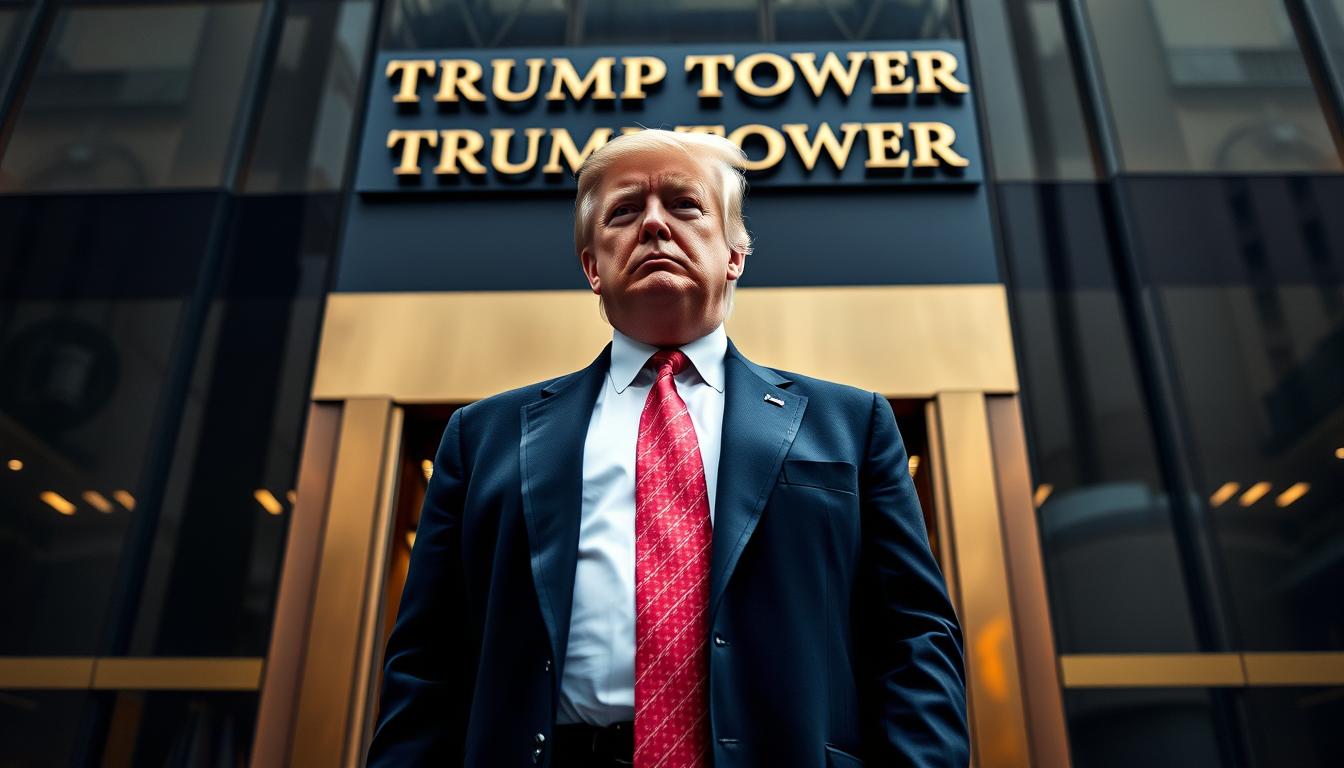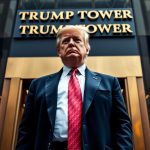The presidency of Donald J. Trump (2017-2021) was marked by unprecedented scrutiny regarding potential corruption and conflicts of interest. From his first day in office, when he broke with presidential tradition by refusing to divest from his business interests, to his final weeks in power, Trump’s administration faced persistent allegations of ethical misconduct and abuse of power. This article presents a fact-based chronological examination of verified corruption allegations against the 45th president, comparing his administration’s ethical controversies to those of his predecessors, and analyzing why many historians and legal experts consider his presidency exceptionally scandal-prone.
The Foundation of Conflicts: Refusing to Divest
Trump’s decision not to divest from his business empire created unprecedented conflicts of interest throughout his presidency.
Unlike his predecessors, Donald Trump refused to fully divest from his business interests upon taking office. Instead, he placed his assets in a revocable trust managed by his sons, a move ethics experts widely criticized as insufficient. According to the Citizens for Ethics and Responsibility in Washington (CREW), this decision set the stage for more than 3,700 conflicts of interest during his presidency.
The Office of Government Ethics (OGE) director Walter Shaub resigned in July 2017, citing frustration with Trump’s approach to ethics. In his resignation letter, Shaub stated that the United States needed to “strengthen the ethical culture of our government” and that officials should “step back from their private interests.”
This unprecedented arrangement allowed Trump to continue profiting from his global business empire while making decisions that could directly impact his financial interests. The Trump Organization, with properties in numerous countries, created potential leverage points for foreign governments seeking to influence U.S. policy.
Emoluments Clause Violations
The U.S. Constitution’s Foreign Emoluments Clause prohibits federal officeholders from accepting “any present, Emolument, Office, or Title, of any kind whatever, from any King, Prince, or foreign State” without congressional consent. The Domestic Emoluments Clause specifically restricts the president from receiving any emolument beyond his official compensation.
Throughout Trump’s presidency, his businesses—particularly the Trump International Hotel in Washington, D.C.—became destinations for foreign officials, raising serious constitutional concerns. According to court filings in District of Columbia v. Trump, the Trump International Hotel received payments from the governments of Saudi Arabia, Kuwait, and other nations.
“The Trump presidency has been a case study in the exploitation of the highest office in the land for private gain.”
Several lawsuits were filed challenging these arrangements as violations of the Constitution’s Emoluments Clauses:
- CREW v. Trump (filed January 2017) – Alleged that Trump’s business interests violated the Foreign Emoluments Clause
- District of Columbia and Maryland v. Trump (filed June 2017) – Claimed Trump’s hotel business diverted customers from businesses in D.C. and Maryland
- Blumenthal v. Trump (filed June 2017) – Filed by 196 Democratic members of Congress alleging violations of the Foreign Emoluments Clause
While these cases made their way through the courts, Trump’s businesses continued to accept payments from foreign governments. The Supreme Court ultimately dismissed these cases as moot after Trump left office, leaving important constitutional questions unresolved.
Trump Properties: Centers of Influence Peddling
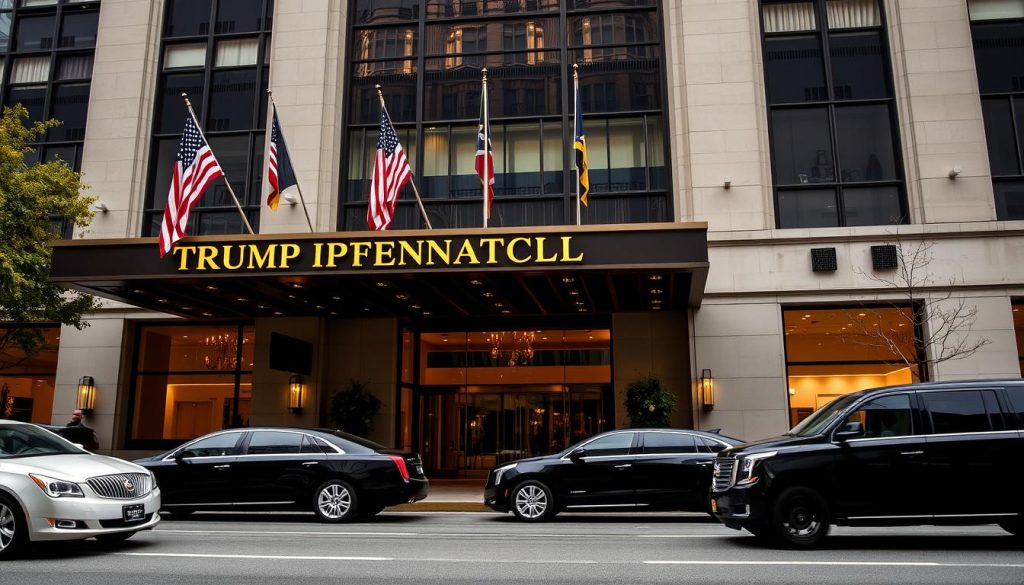
The Trump International Hotel in Washington D.C. became a hub for those seeking to influence the administration.
During his presidency, Trump visited his properties 547 times, according to CREW’s tracking. These visits turned his commercial venues into centers of political activity and influence peddling. The Trump International Hotel in Washington D.C., located just blocks from the White House in the federally-owned Old Post Office building, became particularly notorious as a gathering spot for those seeking to curry favor with the administration.
Government records obtained through Freedom of Information Act requests revealed that Trump’s properties received at least $8.1 million from U.S. taxpayers and Trump’s political supporters during his presidency. This included:
- More than $2.5 million in taxpayer funds spent at Trump properties for presidential visits
- At least $5.6 million in campaign funds spent at Trump businesses
- More than $100,000 in foreign government spending at Trump properties
Industry groups with business before the administration frequently held events at Trump properties. The American Petroleum Institute, payday lenders associations, and other industry groups spent millions at Trump properties while simultaneously lobbying for favorable regulatory changes. In many cases, these groups received the policy outcomes they sought shortly after hosting events at Trump venues.
Mar-a-Lago: The “Winter White House”
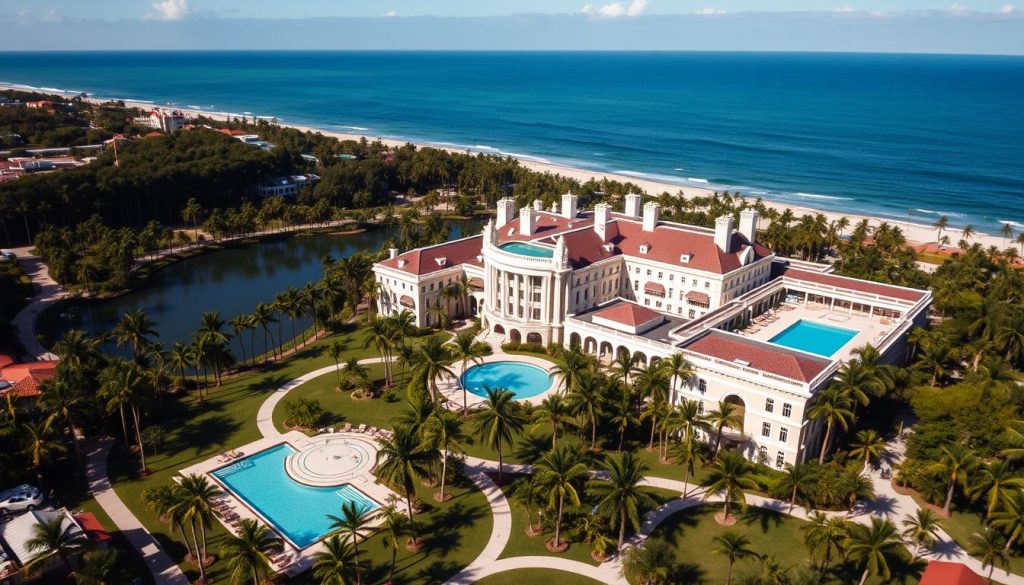
Mar-a-Lago doubled its initiation fee to $200,000 after Trump became president.
Trump’s Mar-a-Lago resort in Palm Beach, Florida, which he dubbed the “Winter White House,” became a particular focal point for influence-seeking. Shortly after his election, the club doubled its initiation fee from $100,000 to $200,000. During his presidency, Trump visited Mar-a-Lago 145 times.
The resort became a place where members and guests could gain unprecedented access to the president. In one notable incident in February 2017, Trump and Japanese Prime Minister Shinzo Abe discussed North Korea’s missile test in full view of paying club members, raising serious national security concerns.
According to a GAO report requested by Democratic lawmakers, each presidential trip to Mar-a-Lago cost taxpayers approximately $3.4 million. These trips also required extensive Secret Service resources, with the agency spending more than $500,000 on golf cart rentals alone during Trump’s presidency.
Foreign Influence and National Security Concerns
Trump’s business entanglements created unprecedented national security vulnerabilities. His financial ties to countries like Russia, China, Turkey, and Saudi Arabia raised questions about whether his policy decisions were influenced by his business interests.
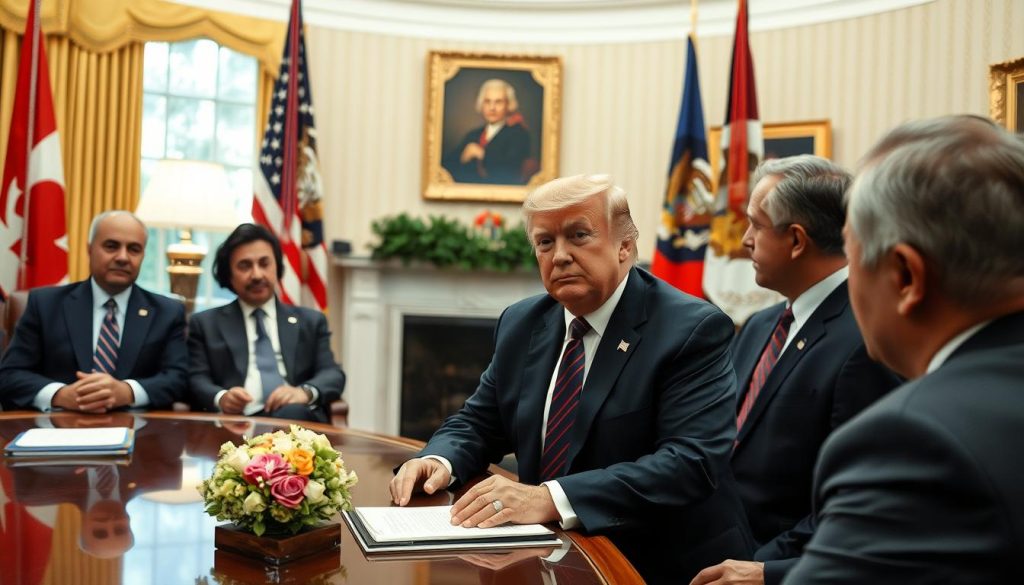
Trump’s business interests in foreign countries raised concerns about potential conflicts in his diplomatic dealings.
Several incidents highlighted these concerns:
- Turkey: After Turkish President Recep Tayyip Erdoğan pressed Trump to quash an investigation into a Turkish bank, Trump reportedly told then-Secretary of State Rex Tillerson he wanted the case dropped. Trump had previously acknowledged his conflict of interest in Turkey, stating in a 2015 interview: “I have a little conflict of interest because I have a major, major building in Istanbul.”
- Saudi Arabia: Trump maintained a supportive stance toward Saudi Arabia despite the murder of journalist Jamal Khashoggi. The Trump Organization had significant business ties to Saudi entities, and Saudi officials spent lavishly at Trump properties.
- China: While negotiating trade deals with China, Trump received approval for 18 trademarks from the Chinese government—applications that had previously been stalled for years.
Former national security officials expressed concern that these business entanglements made the president vulnerable to foreign influence. In a 2019 amicus brief filed in an emoluments lawsuit, former officials warned that foreign governments could “curry favor with the President by purchasing real estate from one of his companies.”
Cabinet-Level Corruption and Misuse of Office
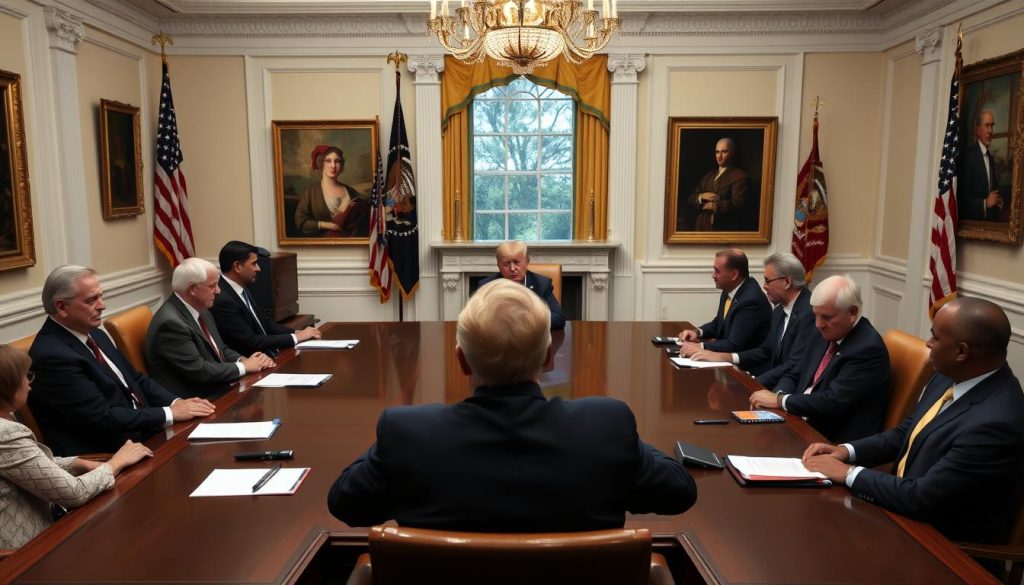
Trump’s cabinet was plagued by ethics scandals, with multiple secretaries resigning amid corruption allegations.
The Trump administration was marked by unprecedented turnover and ethics scandals among cabinet officials. Several cabinet members resigned amid allegations of corruption or misuse of office:
Health and Human Services Secretary Tom Price
Resigned in September 2017 after reports revealed he had spent more than $1 million in taxpayer funds on private and military aircraft for travel that could have been conducted more economically.
EPA Administrator Scott Pruitt
Resigned in July 2018 following at least 14 federal investigations into his spending, travel, security, and other practices, including renting a condo at below-market rate from the wife of an energy lobbyist.
Interior Secretary Ryan Zinke
Resigned in December 2018 amid multiple ethics investigations, including a land deal involving the chairman of Halliburton, a company that would benefit from Zinke’s policies at Interior.
Commerce Secretary Wilbur Ross
Maintained financial interests in companies affected by his department’s policies and was found to have made false statements about divesting assets.
According to a report by the Center for American Progress, Trump’s cabinet officials wasted more than $2.8 million on extravagant travel and office expenses—47 times what the average American family earns annually.
The Ukraine Scandal and First Impeachment
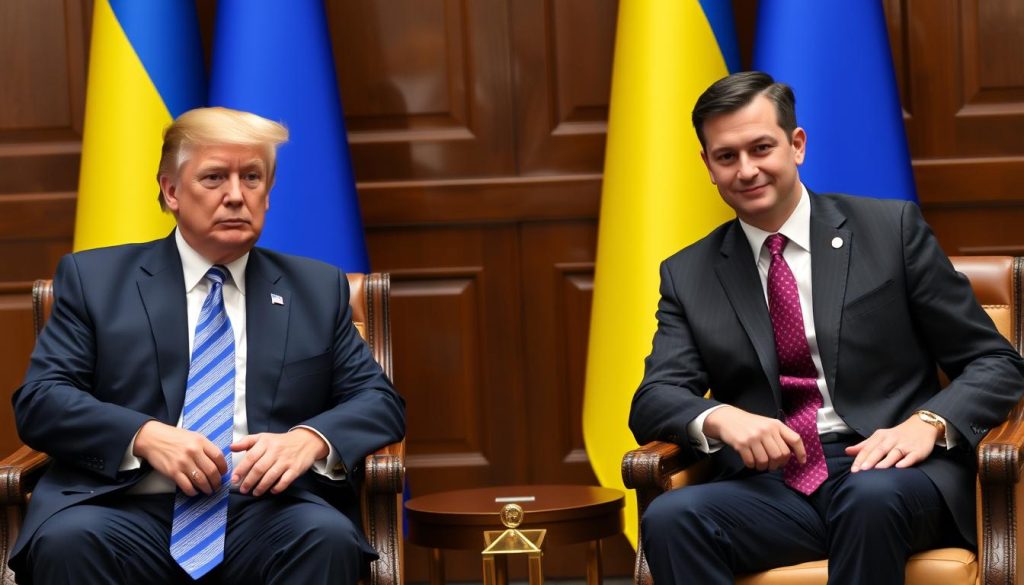
Trump’s interactions with Ukrainian President Volodymyr Zelensky led to his first impeachment.
In July 2019, Trump held a phone call with Ukrainian President Volodymyr Zelensky in which he asked for “a favor” – an investigation into his political rival Joe Biden and his son Hunter. This request came while the Trump administration was withholding nearly $400 million in congressionally-approved military aid to Ukraine.
A whistleblower complaint about the call triggered a House investigation that uncovered what Ambassador William Taylor called an “irregular, informal channel of U.S. policy-making” led by Trump’s personal attorney Rudy Giuliani. This channel was working to condition a White House meeting and military aid on Ukraine announcing investigations that would benefit Trump politically.
“I would like you to do us a favor though… There’s a lot of talk about Biden’s son, that Biden stopped the prosecution and a lot of people want to find out about that so whatever you can do with the Attorney General would be great.”
On December 18, 2019, the House of Representatives impeached Trump on charges of abuse of power and obstruction of Congress. The Senate acquitted him on February 5, 2020, with only one Republican, Senator Mitt Romney, voting to convict on the abuse of power charge.
Pardons and Commutations: Rewarding Loyalty
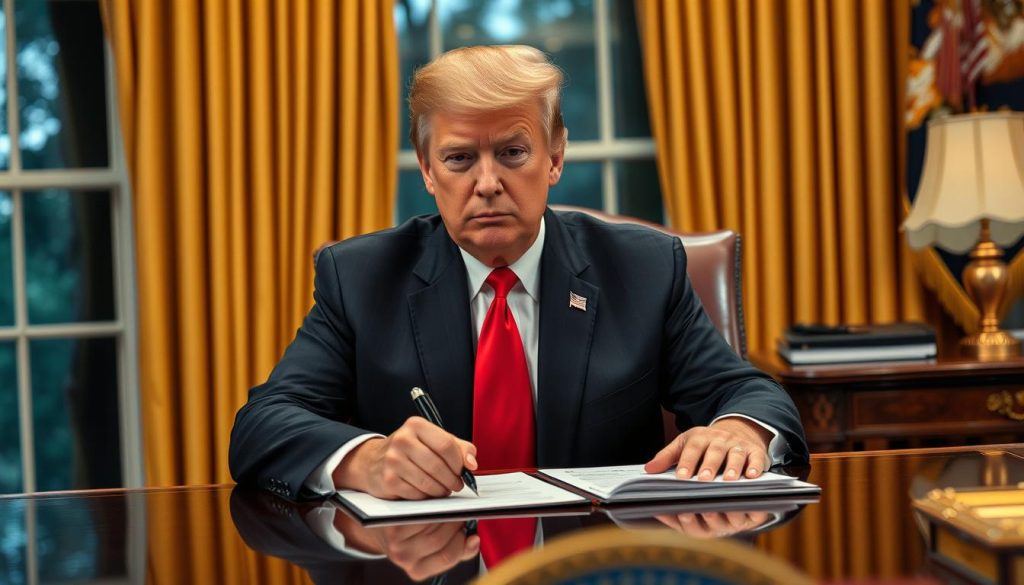
Trump used his pardon power in ways that raised significant ethical concerns.
Trump’s use of the presidential pardon power raised significant ethical concerns. He frequently bypassed the Justice Department’s Pardon Attorney process, which traditionally reviews and recommends clemency cases based on established criteria.
A Harvard Law School analysis found that 86% of Trump’s pardons and commutations went to people with personal or political connections to him, compared to just 5% for Barack Obama and 6% for George W. Bush. Notable examples include:
- Roger Stone – Trump commuted the sentence of his longtime political adviser, who was convicted of lying to Congress and witness tampering in the Russia investigation
- Paul Manafort – Trump pardoned his former campaign chairman, who was convicted of tax and bank fraud related to his work for pro-Russian politicians in Ukraine
- Michael Flynn – Trump pardoned his former national security adviser, who pleaded guilty to lying to the FBI about his contacts with the Russian ambassador
- Charles Kushner – Trump pardoned the father of his son-in-law Jared Kushner, who had been convicted of tax evasion, witness tampering, and making illegal campaign contributions
Jack Goldsmith, a Harvard Law professor and former head of the Justice Department’s Office of Legal Counsel, concluded that Trump’s pardons “reflect Trump’s thorough disdain for the rule of law.”
Hatch Act Violations and Politicization of Government
The Hatch Act prohibits federal employees from engaging in political activities while on duty. The Trump administration was marked by unprecedented violations of this law, with the Office of Special Counsel (OSC) documenting numerous infractions.
In a 2019 report, the OSC found that White House counselor Kellyanne Conway violated the Hatch Act so frequently and flagrantly that it recommended her removal from federal service—an unprecedented step. When asked about Conway’s violations, Trump indicated he would not discipline her, effectively nullifying the law for his close advisers.
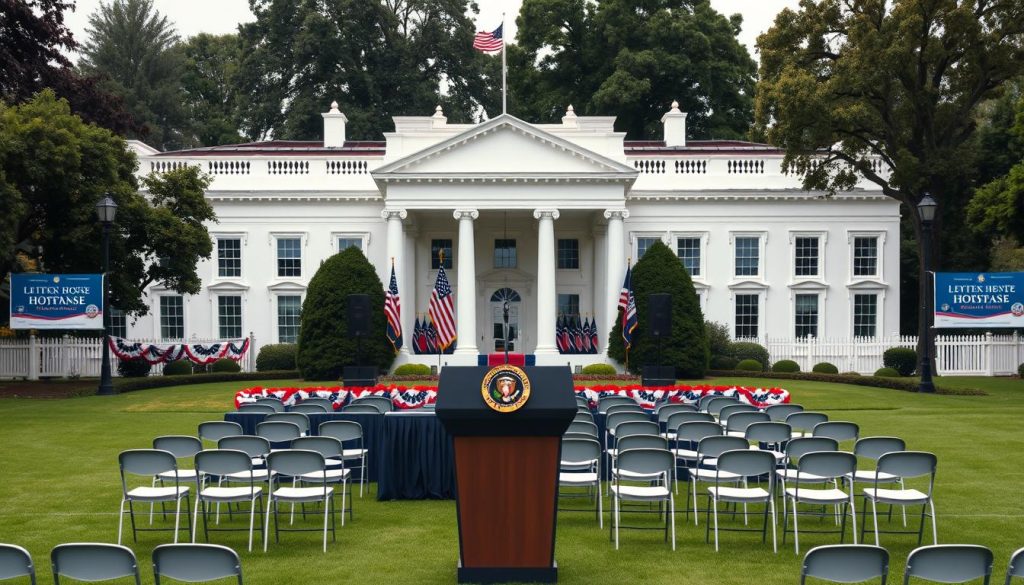
The 2020 Republican National Convention’s use of the White House for campaign events violated longstanding norms.
The 2020 Republican National Convention featured numerous potential Hatch Act violations, including Secretary of State Mike Pompeo delivering a campaign speech while on official diplomatic business in Jerusalem, and the use of the White House as a campaign backdrop for multiple speeches, including Trump’s acceptance of the nomination.
The OSC later determined that at least 13 senior Trump administration officials violated the Hatch Act, concluding in a 2021 report that there was “a willful disregard for the law’s requirements on the part of many in the Trump administration.”
Post-Election Fundraising and Second Impeachment
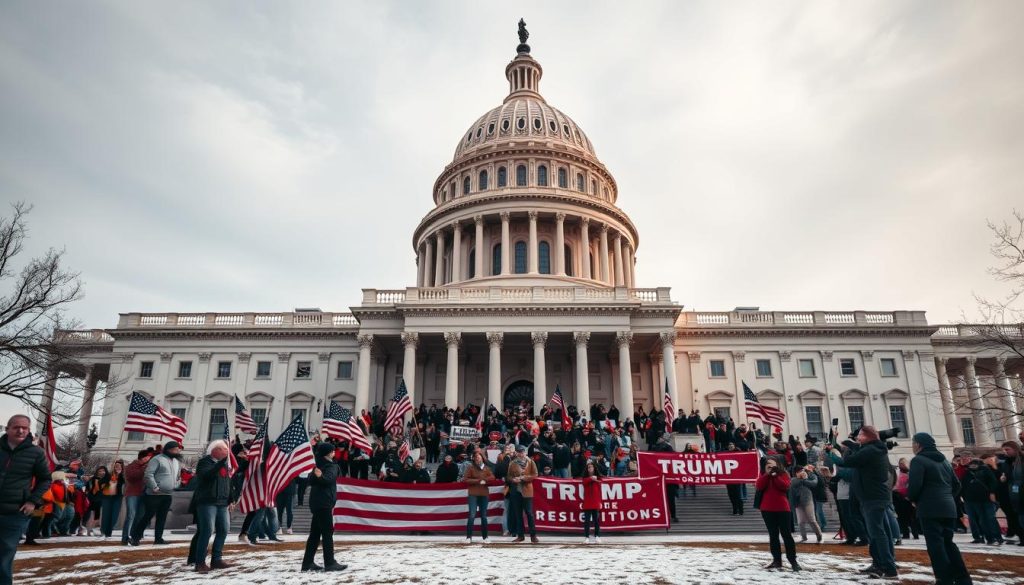
The January 6, 2021 Capitol insurrection led to Trump’s second impeachment.
After losing the 2020 election, Trump raised more than $250 million from supporters by claiming election fraud and promising to fight the results. However, according to FEC filings, only a small fraction of these funds went to legal challenges. Instead, much of the money was directed to Trump’s newly created Save America PAC, his hotel properties, and the Republican National Committee.
Trump’s post-election behavior culminated in the events of January 6, 2021, when he encouraged supporters to march to the Capitol as Congress was certifying the Electoral College results. The subsequent riot led to five deaths, numerous injuries, and significant damage to the Capitol building.
On January 13, 2021, the House of Representatives impeached Trump for “incitement of insurrection,” making him the only president to be impeached twice. Though the Senate voted 57-43 in favor of conviction—with seven Republicans joining all Democrats—this fell short of the two-thirds majority required.
“If you don’t fight like hell, you’re not going to have a country anymore.”
The House Select Committee investigating the January 6 attack later uncovered evidence that Trump continued fundraising off election fraud claims even after his own advisers had told him they were false, raising questions about potential wire fraud.
Comparison to Previous Administrations
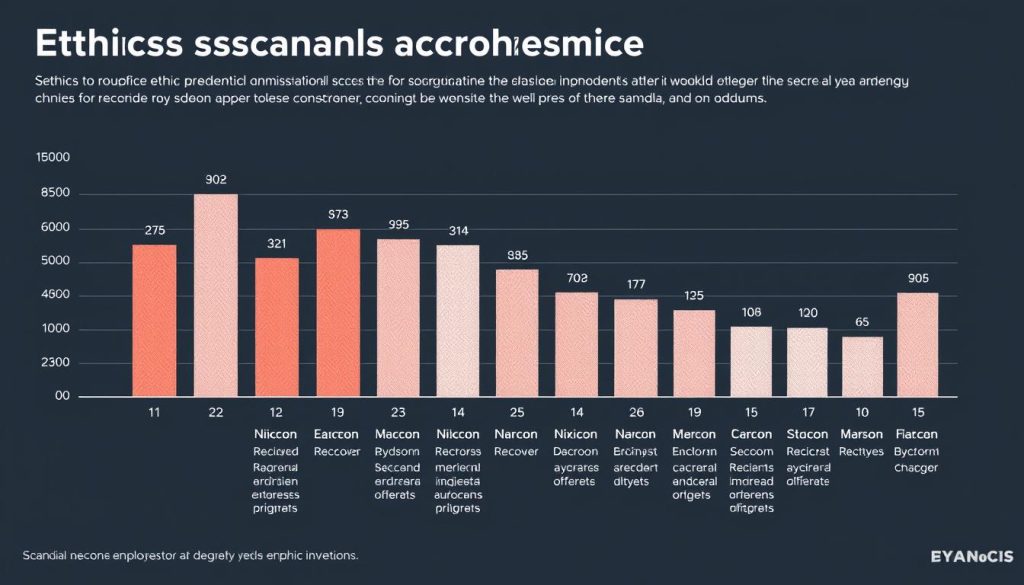
The Trump administration saw significantly more criminal indictments than previous administrations.
While corruption scandals have occurred in previous administrations, the scale and nature of ethical issues during the Trump presidency were unprecedented in modern American history.
| Administration | Criminal Indictments | Criminal Convictions | Prison Sentences |
| Trump (2017-2021) | 34 | 8 | 5 |
| Obama (2009-2017) | 0 | 0 | 0 |
| W. Bush (2001-2009) | 16 | 16 | 9 |
| Clinton (1993-2001) | 2 | 1 | 1 |
| H.W. Bush (1989-1993) | 1 | 1 | 1 |
| Reagan (1981-1989) | 26 | 16 | 8 |
Key differences between Trump’s ethics issues and those of previous administrations include:
- Personal financial benefit: Unlike previous presidents who divested from their business interests or placed them in blind trusts, Trump maintained ownership of his global business empire while in office
- Nepotism: Trump appointed family members to senior White House positions, including his daughter Ivanka and son-in-law Jared Kushner, who maintained their own business interests while serving
- Undermining oversight: Trump fired multiple inspectors general who were investigating his administration and attacked the legitimacy of law enforcement agencies investigating his conduct
- Pardons for associates: Trump used his pardon power to benefit close associates convicted of crimes related to his campaign and administration
Presidential historian Robert Dallek noted that while “corruption and scandal have been part of American politics since the beginning,” the Trump administration was unique in that “the corruption came from the top and was proudly displayed rather than hidden.”
Why Historians and Legal Experts Consider Trump’s Administration Exceptionally Corrupt
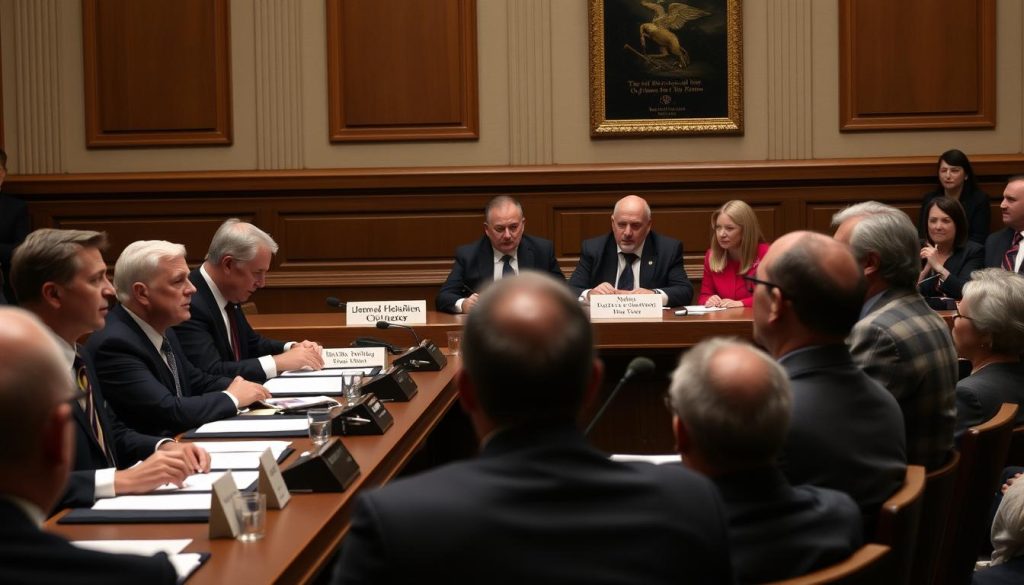
Legal experts and historians have consistently ranked the Trump administration as exceptionally corrupt.
Historians, legal scholars, and ethics experts have identified several factors that made the Trump administration uniquely vulnerable to corruption:
Unprecedented Conflicts of Interest
Trump’s refusal to divest from his business interests created conflicts on a scale never before seen in the American presidency. His continued ownership of hotels, golf courses, and other properties that received payments from foreign governments, lobbyists, and political groups created inherent conflicts between his public duties and private financial interests.
Weakening of Institutional Guardrails
Trump systematically undermined institutions designed to prevent corruption, including firing inspectors general, attacking the Department of Justice’s independence, and refusing to comply with congressional oversight. This weakening of traditional checks and balances allowed corruption to flourish.
Normalization of Unethical Behavior
The Trump administration’s frequent ethical violations created what ethics experts call a “tone at the top” that normalized corruption throughout the government. When senior officials faced no consequences for ethical breaches, it sent a signal that such behavior was acceptable.
Exploitation of Legal Gray Areas
Many of Trump’s actions exploited gaps in laws that assumed presidents would follow norms and traditions even when not legally required to do so. His administration revealed weaknesses in America’s ethics laws that previous presidents had not tested.
In a 2020 survey of presidential historians conducted by the American Political Science Association, Trump ranked last among all presidents in the category of “moral authority.” Similarly, C-SPAN’s 2021 Presidential Historians Survey ranked Trump 44th out of 45 presidents in the “moral authority” category.
“What sets Trump apart is not that his administration was corrupt, but that the corruption was so brazen, so tied to the president personally, and so deeply connected to his core identity as a businessman who refused to separate his public and private roles.”
Conclusion: The Legacy of Trump’s Corruption
Donald Trump’s presidency has left an indelible mark on American politics and governance. His administration’s approach to ethics and conflicts of interest challenged longstanding norms and exposed weaknesses in the legal frameworks designed to prevent corruption in government.
The documented instances of Donald Trump corruption during his presidency—from emoluments clause violations to the use of public office for private gain—have prompted calls for stronger ethics laws and greater accountability for future presidents. Several reform proposals have emerged, including legislation requiring presidents to divest from business interests, strengthening the Office of Government Ethics, and clarifying the enforcement mechanisms for the emoluments clauses.
Whether these reforms will be enacted remains to be seen. What is clear is that Trump’s presidency has fundamentally altered the conversation about corruption and ethics in American government, creating a new baseline against which future administrations will be measured.
As the United States continues to grapple with the aftermath of the Trump era, the full impact of his administration’s approach to ethics and governance will likely be debated by historians, legal scholars, and political scientists for generations to come.
Stay Informed About Government Ethics and Accountability
Democracy depends on an informed citizenry. Subscribe to our newsletter for regular updates on government ethics, corruption investigations, and accountability measures across all administrations.
